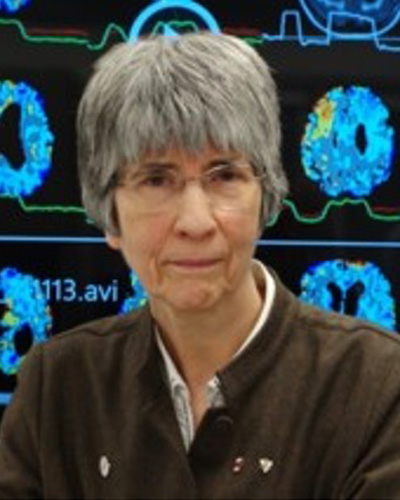Join the Machine Learning in Medical Imaging Consortium (MaLMIC) for a networking opportunity
Monthly Virtual Forum Series on Zoom
Friday, July 16, 2021
3:30 to 5:30 p.m. EDT
Sandra Black, a neurologist, talked about the clinical perspective followed by two researchers, Maged Goubran and Lyndon Boone, describing their machine learning research in the area. This was followed by discussion focused on lessons learned, opportunities to collaborate and sharing of resources.
Monthly Virtual Forum Series on Zoom
Friday, July 16, 2021
3:30 to 5:30 p.m. EDT
Sandra Black, a neurologist, talked about the clinical perspective followed by two researchers, Maged Goubran and Lyndon Boone, describing their machine learning research in the area. This was followed by discussion focused on lessons learned, opportunities to collaborate and sharing of resources.


Reconciling complexity and precision medicine: Can Artificial Intelligence really capture real-world ground truth in the common dementias?
Sandra E Black, MD
Professor, University of Toronto, and Senior Scientist, Sunnybrook Research Institute
Talk summary: The Sunnybrook Dementia study exemplifies research embedded in care, a 25 year venture combining standardized, comprehensive neurocognitive, mood, behaviour and functional measures, with real-world pipelines for MRI volumetrics, developed collaboratively with radiology, medical biophysics, and computer programmers, to map topographies of the common dementias and elucidate cerebral small vessel disease. This provided essential ground truth for developing Computational Neural Networks, turning hours of labour into minutes of computation that generate quick, reliable structural diagnostics to support personalized treatments and outcome evaluation.


Building artificial neural networks for neuroimage analysis: applications in dementia and stroke
Maged Goubran, PhD
Assistant Professor, University of Toronto, and Scientist, Sunnybrook Research Institute
Talk summary: Maged will describe some of the novel ML and computational tools that they are building for neuroscience applications and precision medicine, and their impact in the context of Alzheimer’s disease (AD) and traumatic brain injury (TBI). Maged will specifically present their networks for analyzing structural MRI biomarkers, and highlight how they are improving on existing segmentation methods. He then presented their novel ML pipelines for high-throughput analysis and characterization of neuronal and vascular network alterations in animal models of AD and TBI. Finally, Maged described their recent AI model for predicting subject-specific cognitive decline in preclinical AD.


